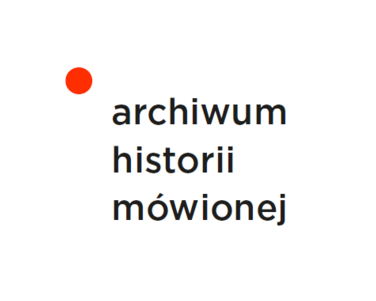The collection of Oral History Archive (OHA) of the KARTA and the History Meeting House strives to show Polish and Central European modern history from the individual, everyday life perspective. It consists of thousands of biographical interviews and family photographs which witness to the ambiguity, richness and different modes of lifestyles before, during, and after the Second World War. First interviews of the OHA were recorded in the 1980s as a part of the “Eastern Archive” project and tackled mainly the experience of communities living in the pre-war Polish regions, which now form a part of Belarus and Ukraine. Eastern Archive is a collection of testimonies gathered from former Polish citizens who had been imprisoned, resettled and repressed by the Soviet Union after 1939, and whose memories were excluded from the official view of the past during the communist era. Only in the last years of the Polish Peoples’ Republic it became possible to revoke the memories of those groups.
In the 1990s and especially in the 2000s, the Oral History Archive significantly increased its collection and gained methodological awareness. Initially as a part of the KARTA Foundation, in 2006 the Oral History Archive joined the newly-established History Meeting House. Thanks to international networking with museums, universities and educational institutions using the oral history method in their work, OHA implemented high standards in collecting, digitalizing and archiving the oral history testimonies.
The interviews are conducted by trained volunteers or workers of OHA in a clearly described manner: first, the interviewee is asked to tell his/her life story, then the interviewer tends to ask more detailed questions about the specific events, dates or people the interviewee encountered during his/her lifetime. Depending on the interviewee’s willingness to talk, the oral history testimony can last up to several hours - recorded during several meetings. After the interview, both parties sign the agreement on the means of usage and dissemination of the recording – the oral history witness can remain anonymous if he/she wishes to, and the access to the recording can be restricted or open to the general public. Large part of the collection - depending on the form of agreement signed with the interviewee - can be accessed on the www.relacjebiograficzne.pl website. Most of the interviews are accompanied by scans of the family photographs from the interviewee (overall 30 000 scanned photographs illustrate the historical events and social processes described in the testimonies).
Oral History Archive consists of over 5 000 biographical interviews conducted among different groups: Poles living in Ukraine and Belarus (so-called Eastern Archive), survivors of Nazi persecutions (such as ex-prisoners of concentration camps), elderly inhabitants of Warsaw who witnessed events such as the Second World War, Warsaw Uprising or Stalinist period in Poland, as well as immigrants living in Warsaw or dissidents active not only in Warsaw, but in some smaller cities. In the first period of its activities, the OHA team tended to record as many testimonies as possible from the elderly citizens, especially those who experienced the Nazi and Stalinist persecutions. In the 2000s, with the growing interest in local and small history of the minority groups, the collection about the counter-culture in Polish People’s Republic, workers’ biographies, women and petty trade, also became a vital part of the OHA archive. Overall, the collection of OHA of the KARTA and the History Meeting House strives to show the broad picture of Polish and Central European modern history from the individual, everyday perspective and thus, every researcher interested in social history can find there some materials about everyday resistance and cultural opposition during socialism.
Thanks to the close cooperation of the Oral History Archive with the Education Department and Exhibition Department of the History Meeting House, the OHA resources are consequently presented to general public through lectures, publications and exhibitions.

